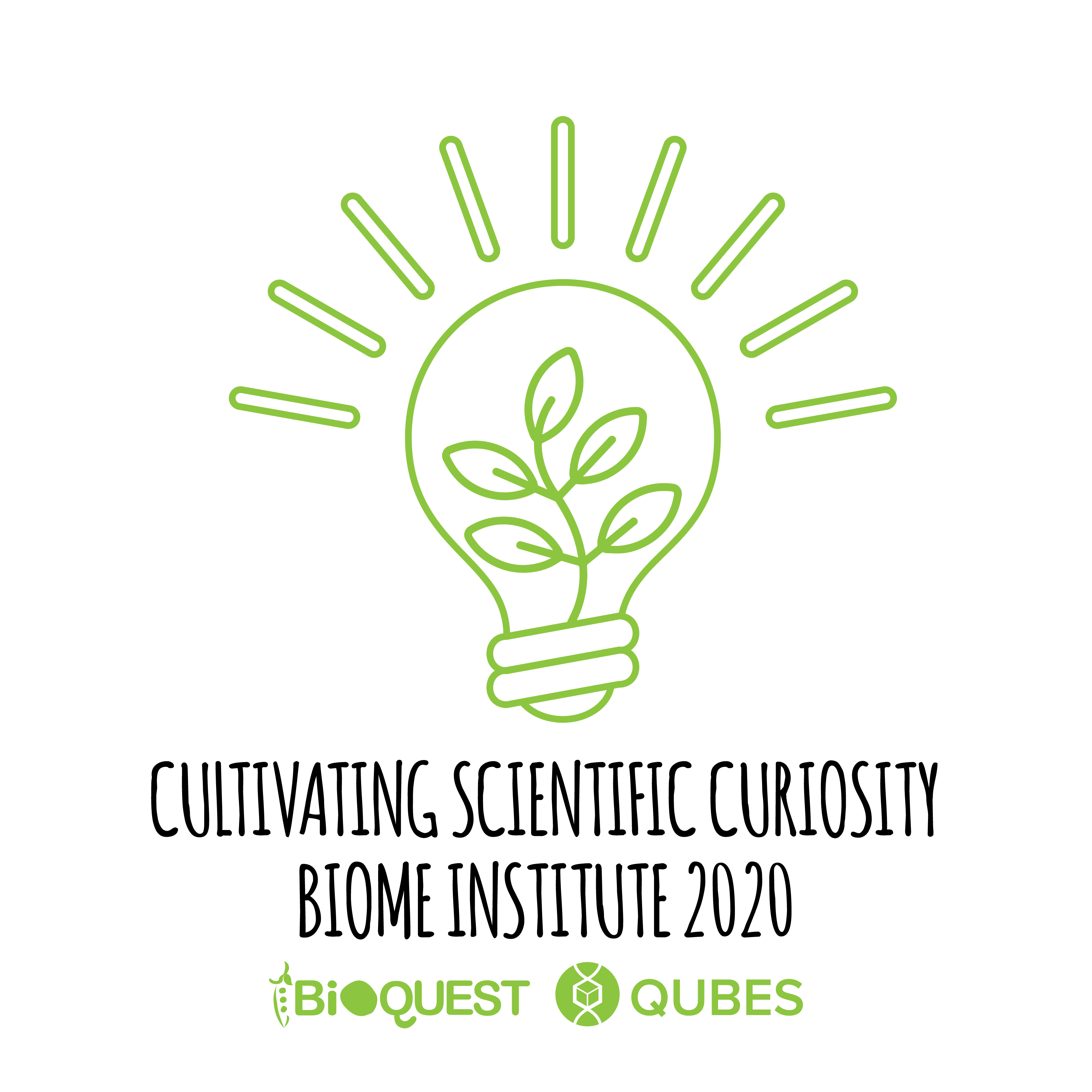Cultivating Scientific Curiosity
Posters & Beyond
Posters & Beyond is an opportunity to learn about models and resources that support undergraduate research experiences, and meet the BIOME community. Visit posters on your own during the week of July 27, and meet with the poster presenters the week of August 3. These resources will remain posted on the site, in case you want to revisit them during the fall working group portion of the BIOME Institute.
Posters & Beyond
Monday, August 3
12:30 pm ET / 11:30 am CT / 10:30 am MT / 9:30 am PT
CyVerse: Scalable Image Informatics
Version: 1.0
Monday, August 3
1:30 pm ET / 12:30 pm CT / 11:30 am MT / 10:30 am PT
Exploring multiple approaches to engage underrepresented students in research with natural history collections.
Version: 1.0
Tuesday, August 4
12:30 pm ET / 11:30 am CT / 10:30 am MT / 9:30 am PT
Tuesday, August 4
1:30 pm ET / 12:30 pm CT / 11:30 am MT / 10:30 am PT
Engaging students in data exploration using digital biodiversity databases: BLUE Data Network
Version: 1.0
Integrating digitized biodiversity data exploration into the undergraduate biology curriculum
Version: 1.0
Tiny Earth: Studentsourcing antibiotic discovery
Version: 1.0
Wednesday, August 5
12:30 pm ET / 11:30 am CT / 10:30 am MT / 9:30 am PT
Scientist Spotlights: Integrating Themes of Diversity and Inclusion with Course Content
Version: 1.0
Pivoting Intro from Inquiry to Online
Version: 1.0
Growing from Tiny Earth: A model for interdisciplinary CUREs at Johnson County Community College
Version: 1.0
Wednesday, August 5
1:30 pm ET / 12:30 pm CT / 11:30 am MT / 10:30 am PT
The Genomics Education Partnership: Introducing Undergraduates to Research by Engaging Them in Genome Annotation
Version: 1.0
The Network for Integrating Bioinformatics into Life Sciences Education (NIBLSE): Barriers to Integration
Version: 1.0
The Genomics Education Partnership: Exploring best practices in implementation of a genomics CURE
Version: 1.0
Thursday, August 6
12:30 pm ET / 11:30 am CT / 10:30 am MT / 9:30 am PT
Making bioinformatics tools classroom-friendly
Version: 1.0
HITS: A network to create inquiry-based case studies that make high-throughput approaches and discovery accessible
Version: 1.0
Thursday, August 6
1:30 pm ET / 12:30 pm CT / 11:30 am MT / 10:30 am PT
The ADW: a database of animal natural history that supports complex, authentic student inquiry.
Version: 1.0
SENCERizing your CURE
Version: 1.0
Faculty Mentoring Networks: Community Professional Development for the Digital Age
Version: 1.0 Adapted From: Faculty Mentoring Networks: Community Professional Development for the Digital Age v1.0
